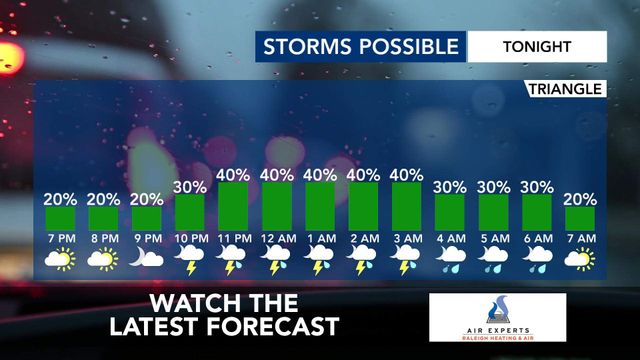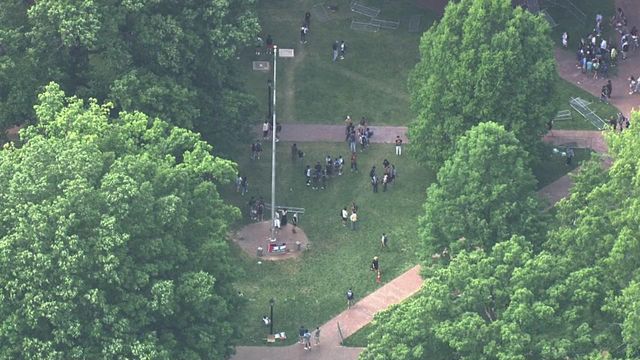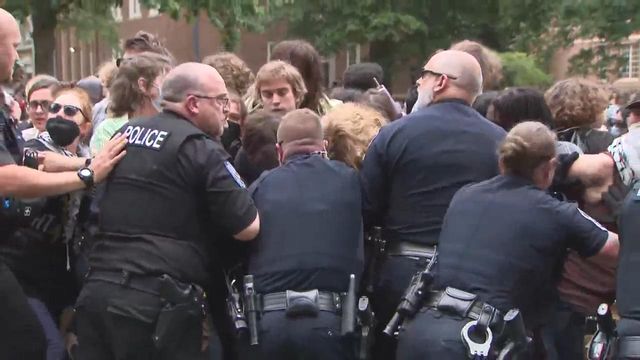The power of the Girl Scout experience: how the program changes lives

This article was written for our sponsor, Girl Scouts North Carolina Coastal Pines.
The mission of the Girl Scouts is to "build girls of courage, confidence and character who make the world a better place." For Gold Award Girl Scout Trinity Garza, the program did all of that and more.
Garza, an 18-year-old freshman at Western Governors University, started Girl Scouting at age 11. She said she was interested in the volunteer opportunities and the STEM workshops. Garza emphasized she has always loved helping people, and felt like Girl Scouts was a way she could amplify her altruistic desires.
"I love to help others. Making friends is a plus, but helping others was my number one priority," said Garza.
As mentioned, Garza is a Gold Award Girl Scout — one of the program's highest honors. To earn this recognition a Girl Scout must tackle an issue that is dear to them and complete a related project that "drives lasting change in their communities and beyond."
A Gold Award Girl Scout must identify an issue, investigate it thoroughly, create a plan, build a support team, present the plan and gather feedback, carry out the plan, and then share their story and results. The project also includes a project proposal and a final report.
"I had to do a project, which is all about leadership. There were two parts to it — I did two collection drives for children in foster care. And for the second part, I did two presentations for the public called 'Child Abuse: Ending the Silence,'" said Garza. "I collected backpacks, toys, school supplies, and toiletries. I chose my project because I was originally someone who was abused."
Garza's personal experience with verbal and physical abuse started at an early age. As a baby, her biological mother left Garza "neglected and clearly malnourished." Law enforcement intervened and Garza was placed in foster care for a short time before her father obtained full custody of her. His wife adopted Garza a year later. However, due to her early childhood abuse, Garza suffered lingering emotional effects and her new mother grew concerned because she wasn't speaking or making verbal cues.
"I was put in special education classes for about two years where I met with therapists, but after that, I attended regular public school where I discovered that I loved to learn and excelled in classes," said Garza. "I was very timid and shy around everyone, but a few years later, that's when I joined Girl Scouts."
Girl Scouts helped Garza come out of her shell and she went on to earn the Bronze and Silver awards before receiving her Gold Award at 15-years-old. A breakthrough moment for her was being invited to take part in the Lady Cardinal Mentorship Program, a 4-week summer enrichment opportunity for high school girls in North Carolina who are interested in exploring careers in science, technology, engineering, and/ or mathematics within state government. Garza was invited to give a public presentation on environmental sustainability at the Governor's mansion in front of 100 staff members.
Garza, who once did not speak, put her voice behind an issue she cared about in front of stakeholders and leaders that would have created nervousness in even the most confident of adults.
"After the Gold Award presentations when I ended up doing one more presentation for Governor Roy Cooper and about 100 of his staff — for that I actually was not nervous. I was actually excited and happy to do it," she said.
To date, Garza said her Gold Award project was the most rewarding experience she had as a Girl Scout.
"Dropping off the things I had collected for the children at the foster home and seeing how happy the social services people were to have these things that they could give to the kids was great," said Garza. "Even during one of my collection drives, there was a guy who had brought a car full of stuff for the collection drive. As he was leaving he looked back at me and my mom with tears in his eyes and told us that he had also been in foster care and thanked us for what we were doing."
The transformative power of the Girl Scout program is something Meta Trombley, chief membership officer for Girl Scouts North Carolina Coastal Pines, gets to see everyday.
"When I think about Girl Scouts, I think about all that a girl has yet to accomplish. Through Girl Scouting, just like their parents and families, we want girls to be happy, healthy, and we want them to be filled with self-confidence. We want them to have that can-do spirit and attitude that they can achieve whatever it is they set their minds to," she said. "Girl Scouts is a space where a girl has the safety to try those things. Here she has that safety, that sisterhood, that leadership from her troop leader, and friendships from her fellow Girl Scouts."
Trombley called Girl Scouts "a movement, not a moment" and said the program aims to give girls the opportunity to pursue possibility and exploration, whether that's in STEM, entrepreneurship, outdoorsmanship, or any of dozens of other pathways.
She said being a girl is tough and it can be challenging to find your voice.
"Anything we can do to support that development, I am 1,000 percent behind," said Trombley. "The transformative nature of our program also affects the adults who are involved. As volunteers and parents, when they get involved they're able to share those moments with their girl, they're able to see her development, they're able to see her try new things."
Even during current pandemic times of social distancing, Trombley and her colleagues are finding ways to keep girls, parents, and volunteers engaged.
"When the COVID-19 pandemic struck, a lot of our activities were called to a pause, but we were able to launch our Girl Scouting at Home program," said Trombley. "It's a virtual platform that enables girls and their families to continue that Girl Scout experience at home. Girls are still able to participate in earning badges, participate in some of our live events that are led by some of our staff, and still make those memories that continue to shape their Girl Scout experience."
In addition to engaging virtually, Girl Scouts troops are doing in-person activities (while taking safety precautions like mask wearing and social distancing) and getting outdoors.
Girl Scouts USA has also launched an awareness program that provides information for parents and caregivers to help set girls up for the greatest success even in these uncertain times — things like how to navigate this different school year and being away from friends or family, making the most of being at home, and answering any questions about COVID-19.
Even though Garza has graduated and is no longer a girl member of Girl Scouts, she has plans to keep close ties with the organization in whatever way she can going forward — after all, the program did change her life.
"The best part about Girl Scouts was the people I met and the support they gave me. Girl Scouts definitely helped me. As I began my life, I was abused, so I couldn't speak. And then I went from that to joining the program and then leading a small group of girls, to taking a bit of a leap and doing presentations for committees and then speaking in front of the Governor," said Garza. "After college when I get my human resources degree, I want to work in human resources for them, or at least volunteer at the very minimum."
This article was written for our sponsor, Girl Scouts North Carolina Coastal Pines.









